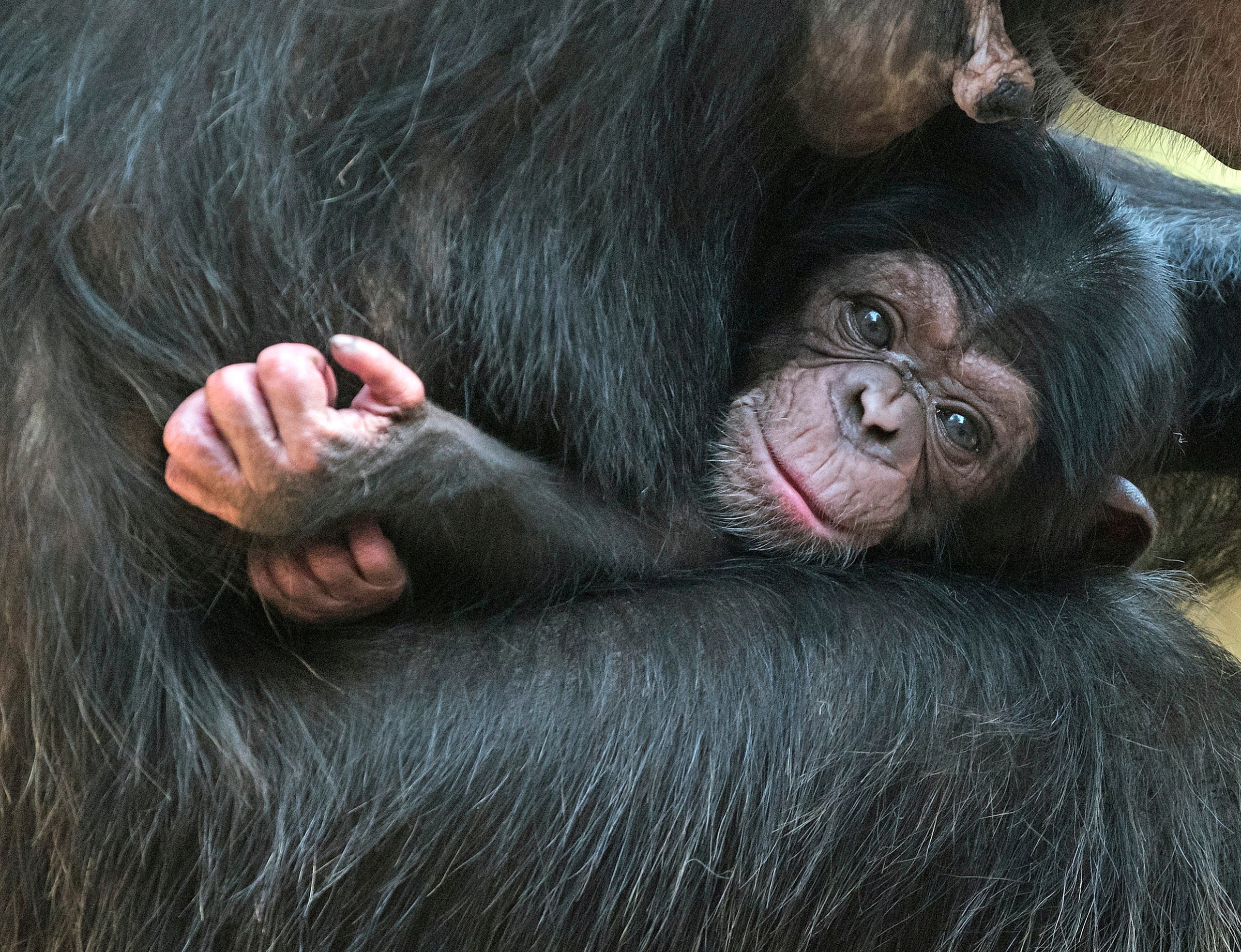
Captive chimpanzees will soon be considered endangered species by the U.S. federal government just like their wild counterparts, federal authorities announced Friday. The designation creates new restrictions on the trade of the animal and has the potential to curb some scientific research that relies on chimpanzees.
The decision comes in response to the increasing threats facing chimpanzees since they were first listed as endangered in 1990, including growing deforestation and expanded poaching and pet trade, according to the U.S. Fish and Wildlife Service (USFWS). An estimated 300,000 to 400,000 wild chimpanzees live across 22 countries in Africa. Approximately 2,000 chimpanzees live in captivity in the U.S.
“This change shows that many people are finally beginning to understand that it is not appropriate to subject our closest relatives to disrespectful, stressful or harmful procedures,” said famed chimpanzee advocate Jane Goodall in a statement.
The rule, rooted in the Endangered Species Act, will prohibit the import or export of chimpanzees into and out of the U.S. without a permit. The rule also bans the trade of chimpanzees in interstate commerce without permission. Chimpanzee use for scientific purposes will still be allowed but will be restricted to purposes that “benefit the species in the wild,” and will be subject to oversight from the USFWS. The new rule is set to be published on June 16 and will go into effect on Sept. 14.
Scientific experiments involving chimpanzees have come under intense criticism in recent years after a number of cases of alleged abuse. The New England Primate Research Center, which housed 2,000 primates, was ordered closed in 2013 after the death of four monkeys. And, that same year, the National Institutes of Health said it would largely curtail its use of chimpanzees for research and rely on them only in special circumstances.
“Their likeness to humans has made them uniquely valuable for certain types of research, but also demands greater justification for their use,” NIH Director Dr. Francis S. Collins said at the time.
More Must-Reads from TIME
- Donald Trump Is TIME's 2024 Person of the Year
- Why We Chose Trump as Person of the Year
- Is Intermittent Fasting Good or Bad for You?
- The 100 Must-Read Books of 2024
- The 20 Best Christmas TV Episodes
- Column: If Optimism Feels Ridiculous Now, Try Hope
- The Future of Climate Action Is Trade Policy
- Merle Bombardieri Is Helping People Make the Baby Decision
Write to Justin Worland at justin.worland@time.com